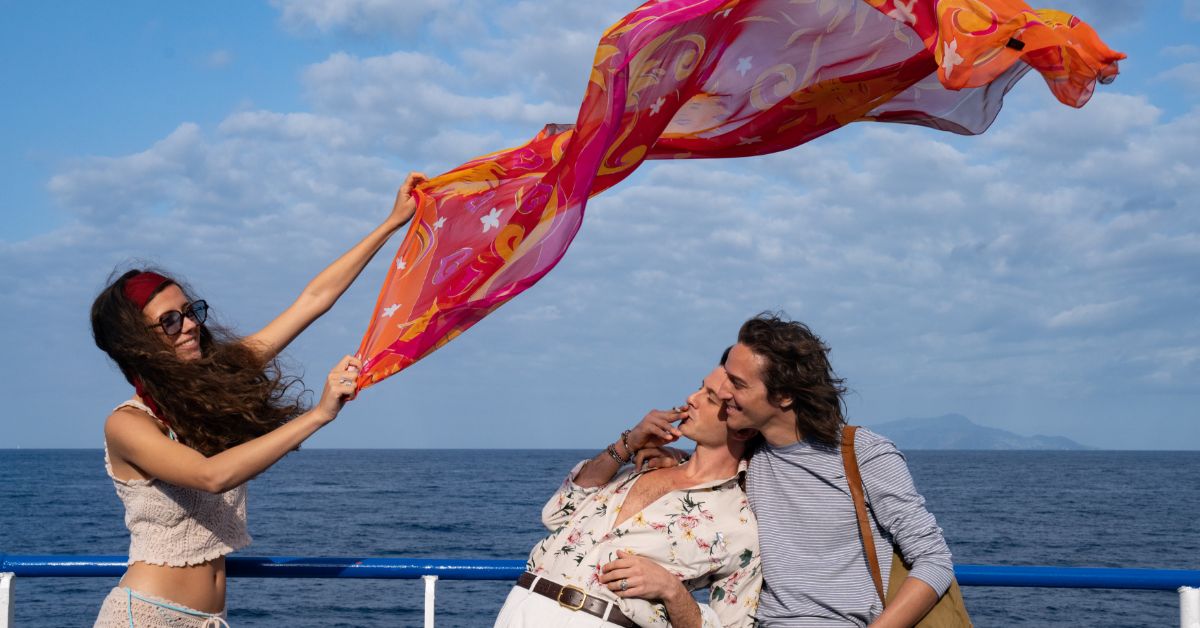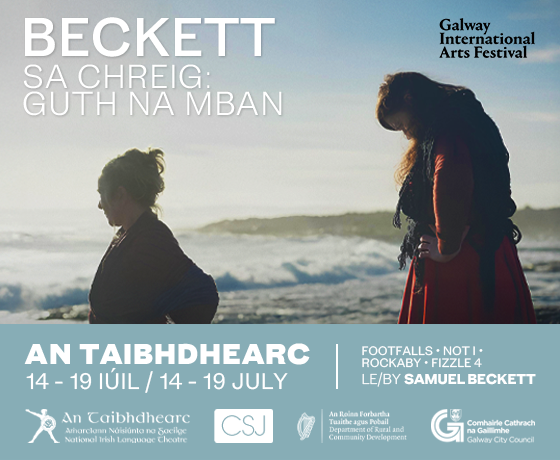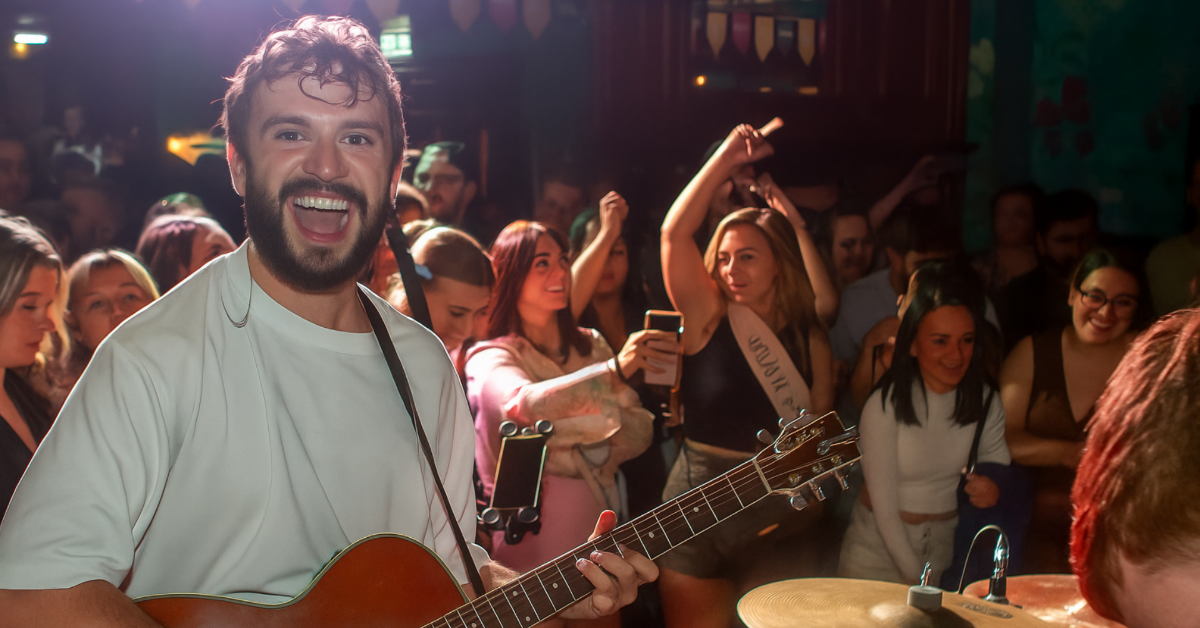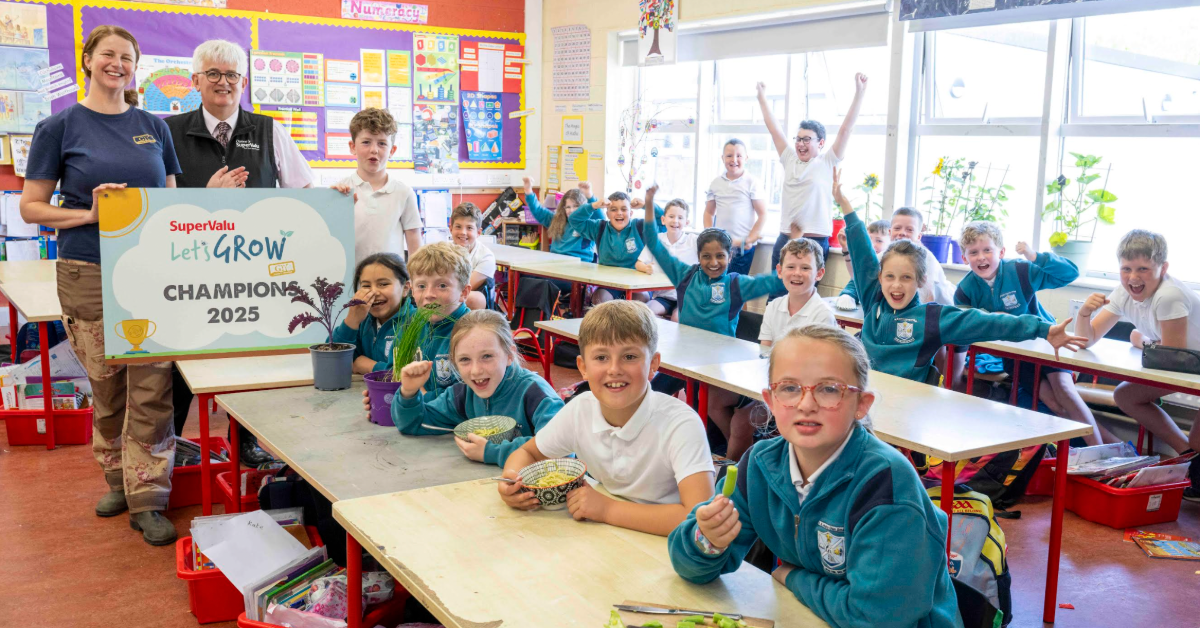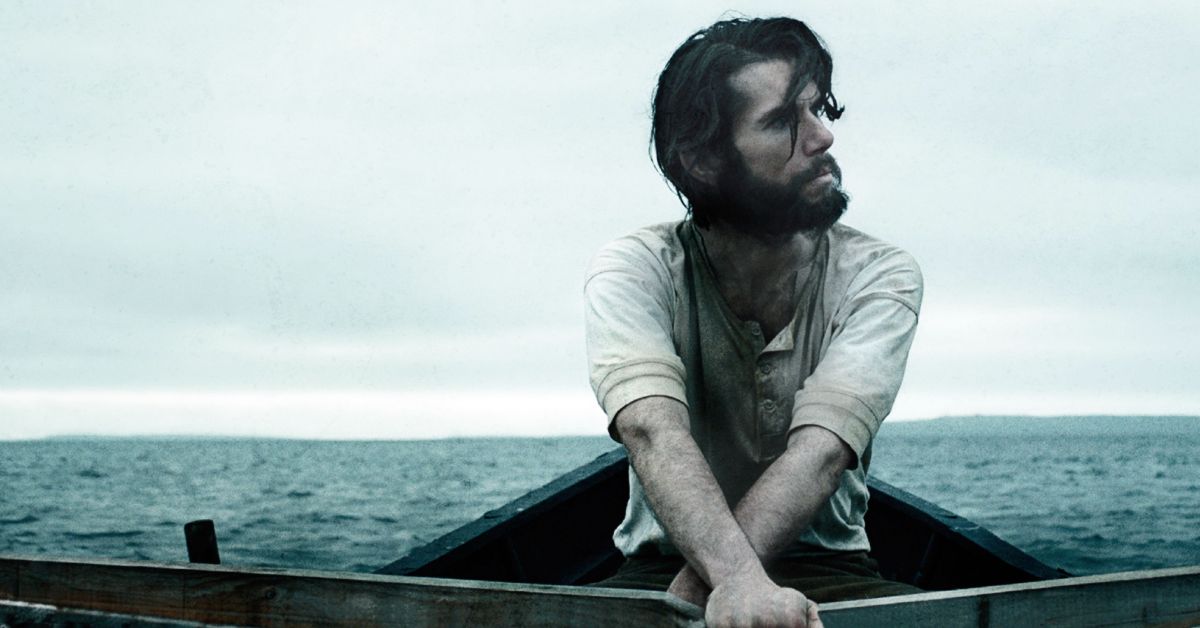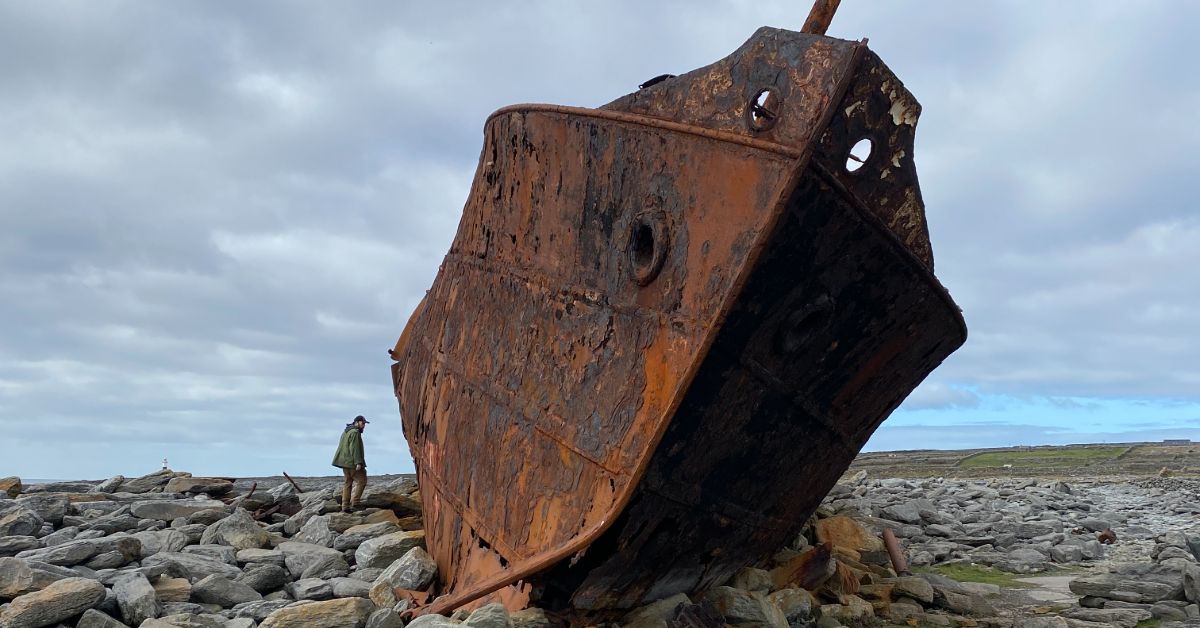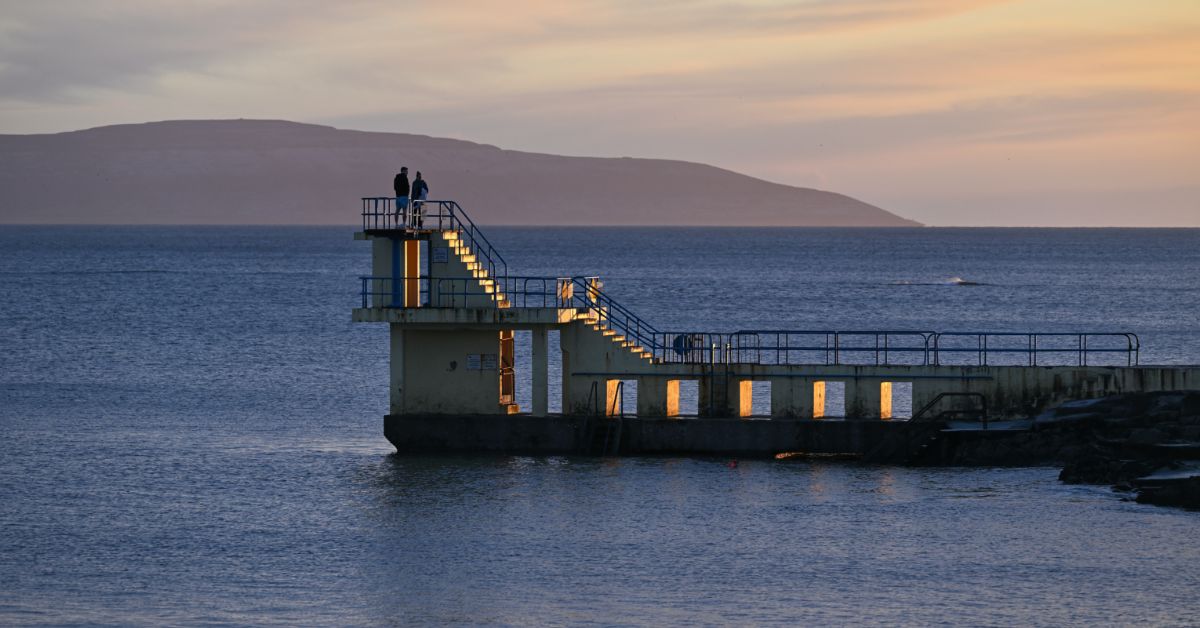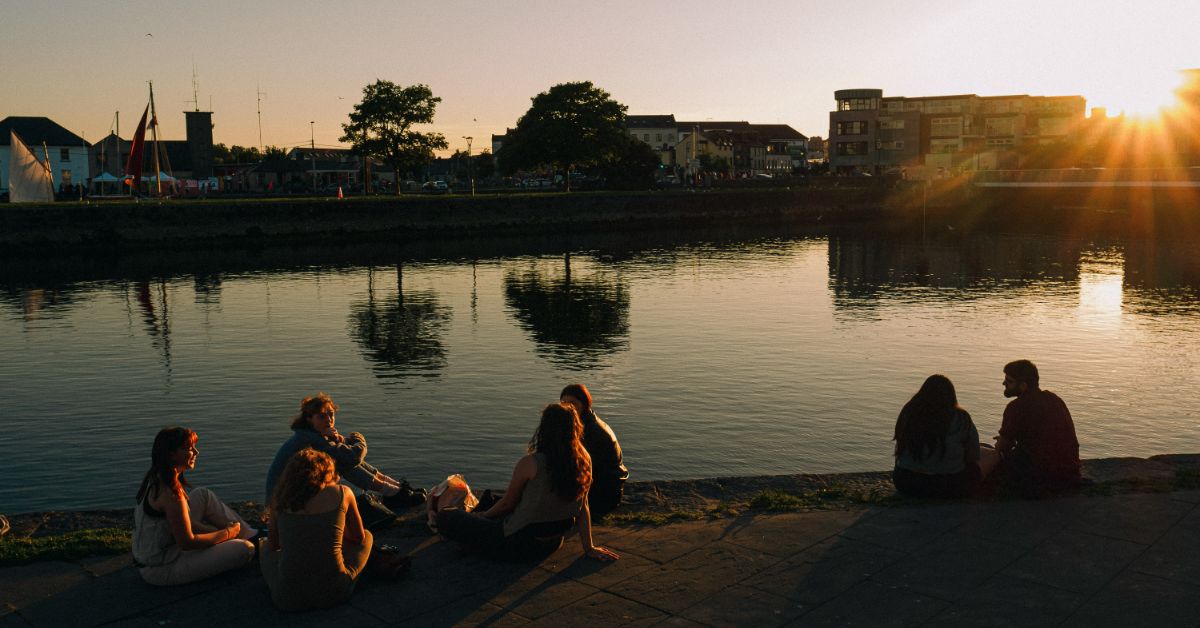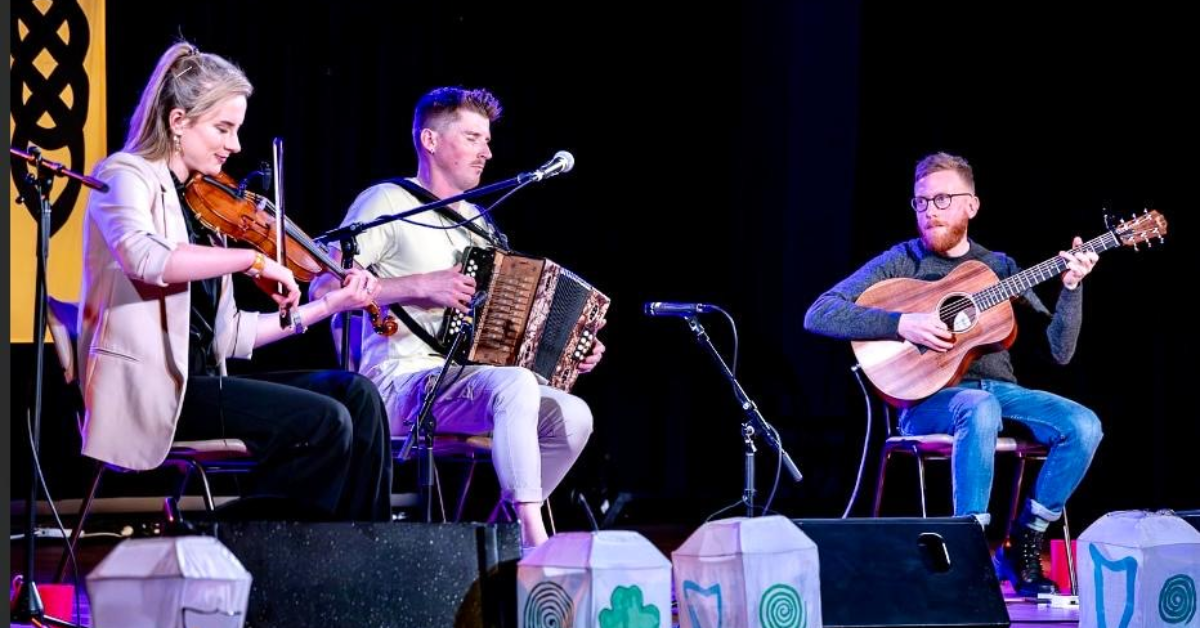Organized by the Embassy of Italy in Ireland and the Italian Institute of Culture, the 4th edition of the N.I.C.E. Italian Film Festival will run from March 27th to April 6th right across Ireland, featuring films by some of Italy’s best contemporary directors. Find out more here...
A captivating selection of films is coming to Dublin, Cork, Galway, and Limerick this year thanks to the collaboration with UCC, University of Galway, Galway Film Society and the Limerick School of Art and Design (LSAD) partnering to expand the Festival's reach even further.
The Galway leg of the N.I.C.E. Italian Film Festival Ireland takes place from April 4th-6th in Eye Cinema Galway, and you can book tickets to all screenings via their website now.
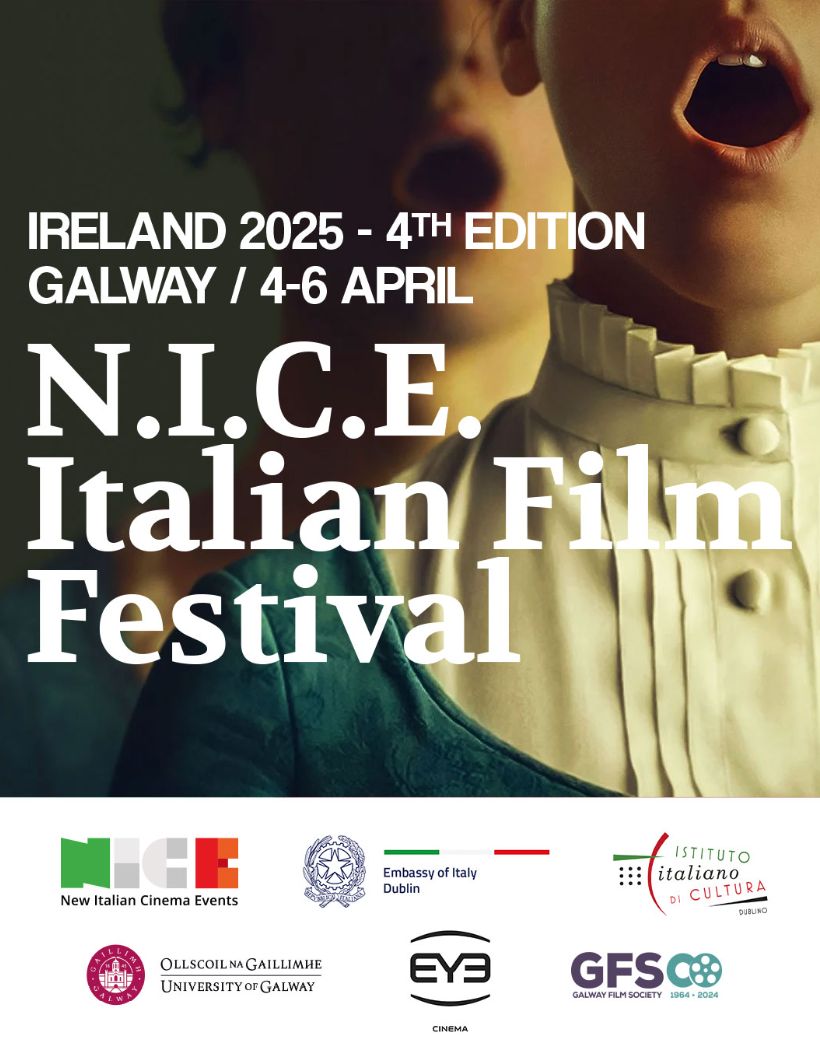
This year’s selection features 10 films and 22 screenings, and is particularly dedicated to the complexities of female characters, exploring the balance between self-representation and external portrayal. 'Romantiche' (Romantic Girls), Pilar Fogliati's directorial debut, delves into the lives of four women navigating personal challenges and aspirations, highlighting their unique journeys toward self-discovery and belonging. 'Diamanti' (Diamonds), directed by Ferzan Özpetek, transports viewers to a bustling tailoring shop in 1970s Rome and its 18 female employees, each bringing their own stories, dreams, and challenges. Margherita Vicario's directorial debut, 'Gloria!', is set in the late 18th-century female institution of Sant'Ignazio near Venice. It follows Teresa, a visionary musical talent, as she challenges the era's conventions by creating music that is both rebellious and modern. The festival team are also excited to bring to Ireland for the first time Paolo Sorrentino’s latest film, 'Parthenope', a tribute to the director’s love for the city of Naples, embodied in the life of the young girl, Parthenope.
Set in Naples as well, 'Il treno dei bambini' (The Children’s Train) by Cristina Comencini tells the story of poverty and pride in a divided Italy at the end of World War II. Also of historical genre, 'L’abbaglio' (The Illusion) is set in 19th-century Sicily and follows a group of unlikely fighters who, under Garibaldi's command, are tasked with deceiving the enemies of the Bourbon army. The film skillfully blends historical elements with an intense narrative, offering a fascinating glimpse into crucial events that shaped Italy's unification. A very different theme is explored in the documentary 'Real', directed by Adele Tulli, which reflects on what it means to be human in the digital age. Through a series of thought-provoking interviews and visual storytelling, the film examines how technology, social media, and virtual realities are reshaping the way we perceive ourselves and others.
'Familia', by Francesco Costabile, is a story about domestic violence and the attempt to rise above it. Winner of several international awards, the film blends genres, ranging from thriller to social drama. Finally, 'Una storia nera' (A Dark Story), directed by Leonardo D'Agostini, is a thriller where, after a bitter divorce, a man disappears without a trace, leaving his ex-wife and children to unravel the mystery.
All films will be screened in Italian with English subtitles. The dates and venues for the 2025 N.I.C.E. Italian Film Festival, taking place across Ireland are as follows:
• Limerick 27-29 March | TUS Millennium Theatre
• Dublin 3-6 April | Opening Night Gala at Odeon Cinema, Regular Screening at Light House Cinema
• Cork 4-6 April | The Arc Cinema
• Galway 4-6 April | EYE Cinema
N.I.C.E. would also like to extend their thanks to DIFF Dublin International Film Festival and CIFF Cork International Film Festival for their support in promoting the Festival.
Visit www.nicefestival.org to find the full programme, films synopsis, festival booklet, ticket booking links, the N.I.C.E. Artistic Director’s Viviana del Bianco introductory words, and ISTITUTO ITALIANO DI CULTURA Director’s Marco Gioacchini introduction
Published on Updated on


